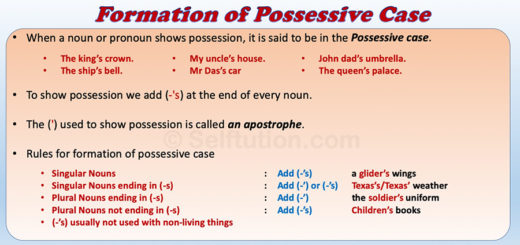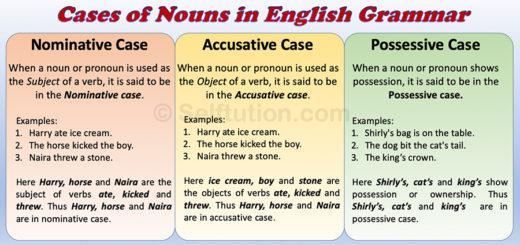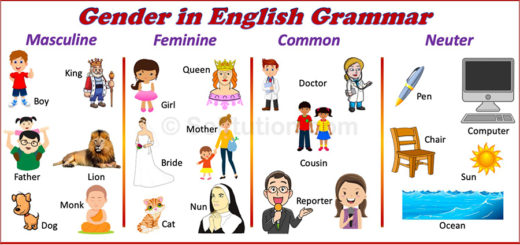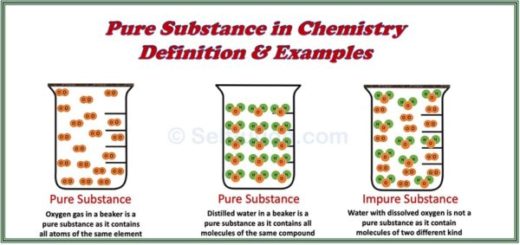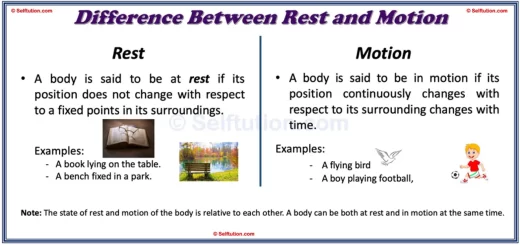PARTS OF SPEECH IN ENGLISH GRAMMAR
In English, we classify words into different classes, called parts of speech. This post, “Parts of Speech in English Grammar,” will introduce kids to various classes of parts of speech. In English grammar, there are eight parts of speech: noun, adjective, pronoun, verb, adverb, preposition, conjunction, and interjection.
Each part of speech plays a unique role in forming sentences and conveying meaning. Whether you’re a student aiming to enhance your grammar skills or simply curious about the fundamentals of English, this guide offers a clear and straightforward overview. Let’s dive in and explore the basics of English grammar together!
IMPORTANT FACT ABOUT PARTS OF SPEECH IN ENGLISH GRAMMAR
Before we proceed further, it is important to understand one key aspect of parts of speech in English grammar. A word may not always belong to the same class, and we should avoid labeling a word as strictly a noun, adjective, or verb.
A word’s classification depends on its function within a specific sentence. For example, a word may be a noun in one sentence and an adjective in another. Therefore, the class to which a word belongs is determined by its role in a particular context.
Look at the following examples with the common word ‘back’:
What part of speech a word is depends upon the work it does in the sentences it belongs to.
- I got my back hurt during the match. (noun)
- Thieves left the house through the back door. (adjective)
- The contractor backed out of the agreement. (verb)
- Raman came back yesterday. (adverb)
Let’s begin to learn some basics of all eight parts of speech in English grammar one by one:
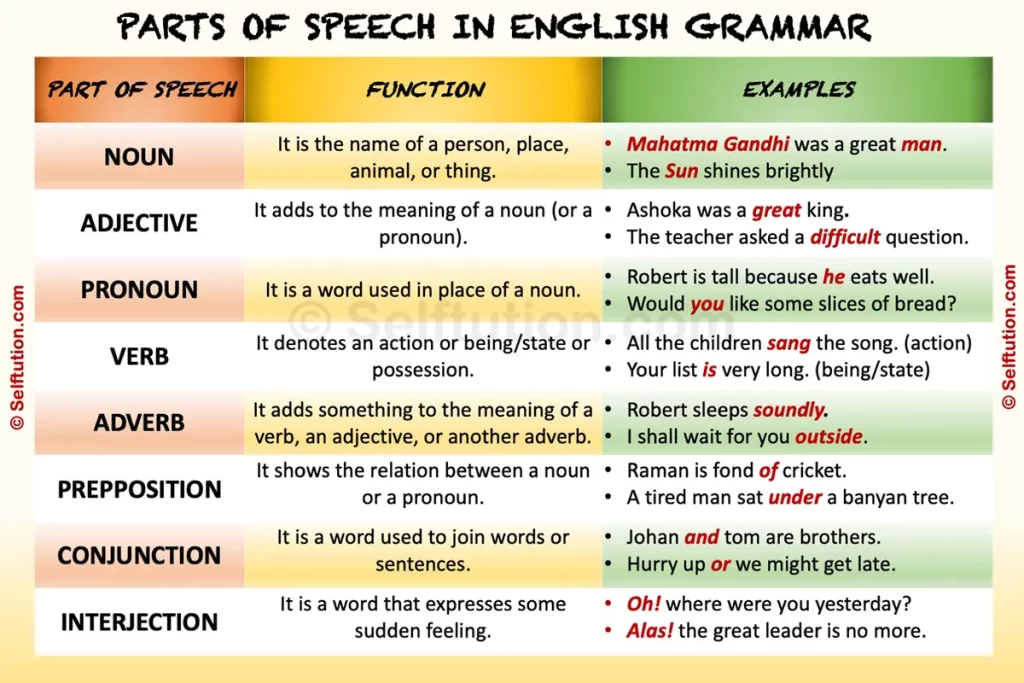
Eight Parts of Speech in English Grammar with Function and Examples
1. NOUNS
A noun is the name of a person, place, animal, or thing. For example, Robert, Julia, boy, girl, hospital, soldier, Chicago, Niagara, stone, box, etc.
It may also name a feeling or idea. For example, anger, beauty, hope, courage, etc.
Some more examples,
- Mahatma Gandhi was a great man.
- The Sun shines brightly.
- The flower smells sweet.
- He ruined everything with his anger.
A noun is basically a naming word, or we can say a noun is the name of anything.
2. ADJECTIVES
This part of speech adds something to the meaning of a noun (or a pronoun). For example, the word tree is a noun. We can have a tall tree, a green tree, a beautiful tree, an old tree, etc. In these expressions, the words tall, green, beautiful, and old describe the noun tree. All these words are adjectives. Thus, an adjective is a descriptive word.
An adjective is a word that adds something to the meaning of a noun (or a pronoun).
Some more examples,
- Ashoka was a great king.
- The teacher asked a difficult question.
Back to the important fact about the parts of speech
3. PRONOUNS
A pronoun is a word used in place of a noun. For example, I, me, mine, you, yours, he, him, his, she, her, hers, it, we, us ours, you, yours, they, them, theirs, etc.
Some more examples,
- Robert is tall because he eats well.
- Would you like some slices of bread?
- This is not my pen. Mine is new.
4. VERBS
A verb denotes an action, or being/a state or possession. All sentences must have a verb with a Subject. Verbs are always part of the Predicate, which makes a statement about the Subject.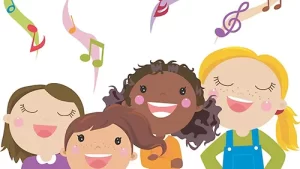
Some examples,
- All the children sang the song. (action)
- The boy fetches a pail of water. (action)
- Your list is very long. (being/state)
- Tom has a smartwatch. (possession)
Back to the important fact about the parts of speech
5. ADVERBS
As adjectives add something to a noun, similarly, an adverb is a word that adds something to the meaning of a verb, an adjective, or another adverb.
Look at these sentences:
- Robert sleeps soundly.
- I shall wait for you outside.
- This flower is very beautiful.
- You have always helped me.
6. PREPOSITIONS
A preposition is a word that shows the relation between a noun or a pronoun and some other word in a sentence. For example, on, of, with, at, against, in front of, as a result of, under, etc.
The word preposition means placing it before. So it is placed before a noun or a pronoun. The other word can be a noun, a verb, or an adjective. Look at the following sentences:
- Raman is fond of cricket.
- A tired man sat under a banyan tree.
- All team members went against the captain.
- There is no gravity on the moon.
Back to the important fact about the parts of speech
7. CONJUNCTION
A conjunction is a word used to join words or sentences. For example, and, but, although, or, as, unless, etc.
Some more examples,
- I respect him although he is very strict.
- Johan and Tom are brothers.
- Hurry up, or we might be late.
- He is intelligent but careless.
8. INTERJECTION
The eighth part of speech in English grammar is an interjection. An interjection is a word that expresses some sudden feeling. For example, Hurrah, Hello, Hush, Alas, Oh, etc.
We always put an exclamation mark (!) after an interjection.
- Oh! Where were you yesterday?
- Alas! The great leader is no more.
- Hurrah! We have won the game.
The word interjection means thrown in. So an interjection is a word thrown in to express some sudden feeling. Otherwise, it does not disturb the sentence at all.

